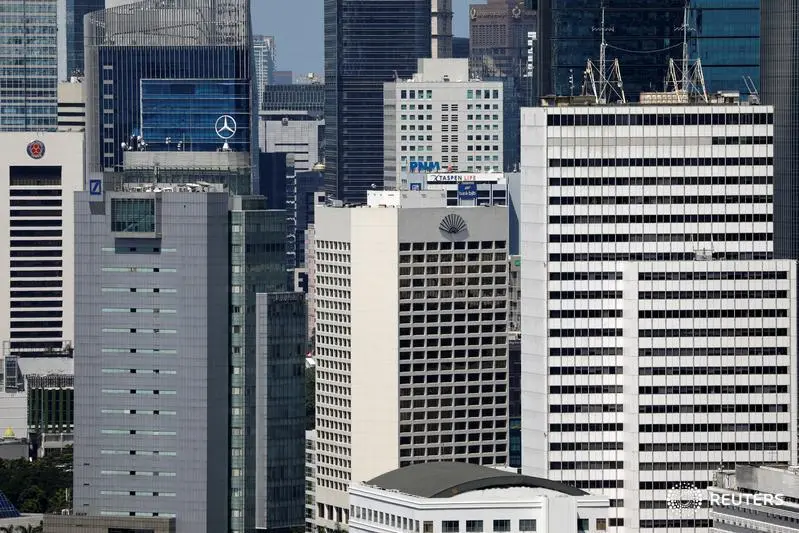PHOTO
Indonesia's annual economic growth fell slightly but remained solid at 5.05% last year, as falling commodity prices hit exports and tight monetary policy dampened demand.
The 2023 gross domestic product (GDP) growth rate, released by Statistics Indonesia on Monday, was close to the government's latest outlook of 5% and slightly below the 5.3% recorded in 2022, when economic activity was boosted by record exports amid a global commodity boom.
Last year, prices of Indonesia's main commodities like palm oil, coal and nickel dropped, while demand from major trade partners also softened amid weakening global growth.
Southeast Asia's largest economy was also feeling the pinch from the central bank's rate hikes, totalling 250 basis points between August 2022 and October 2023, which hit domestic consumption.
The government expects the growth rate to pick up to 5.2% in 2024, hoping that spending for general elections on Feb. 14 and a return of private investment once the political uncertainty eases will boost GDP.
However, some economists predicted growth would remain stable.
DBS Bank economist Radhika Rao, who pencilled in 5% for 2024, acknowledged elections would have an impact on consumption and investment, but warned the trade outlook "will be challenging due to price volatility and slower growth in key trading partners".
Irman Faiz, Bank Danamon's economist, expected 4.9% growth this year.
"We anticipate household consumption to continue slowing down, along with the expectation of lower export revenue this year," he said, adding public investment may also be muted this year.
Household consumption, the country's main growth driver making up over half of Indonesia's GDP, slowed to 4.82% in 2023 from 4.94% the previous year.
Demand could improve if the central bank cuts rates in 2024. Bank Indonesia Governor Perry Warjiyo has repeatedly said the central bank may have room to cut interest rates in the second half and has predicted growth in the range of 4.7% to 5.5%.
NEW CAPITAL CITY
Last year, efforts by the outgoing government to finish projects ahead of the transition of power cushioned the slowdown in household consumption and exports.
Investment expanded 4.40%, faster than the 3.87% recorded in the previous year, due to investment for government projects, including for a planned new capital city in the jungle of Borneo, the China-backed high-speed railway in West Java, Jakarta's new sky train, and a number of toll roads and dams.
Export growth slowed sharply to 1.32%, compared with 2022's expansion of more than 16%. By value, shipments last year shrank by about 11%.
In the final quarter of 2023, economic growth was 5.04% year on year, roughly in line with a forecast of 5% predicted by economists polled by Reuters, and up from 4.94% in the previous three months. (Reporting by Stefanno Sulaiman, Gayatri Suroyo; Editing by Martin Petty, Kanupriya Kapoor and Sonali Paul)





















